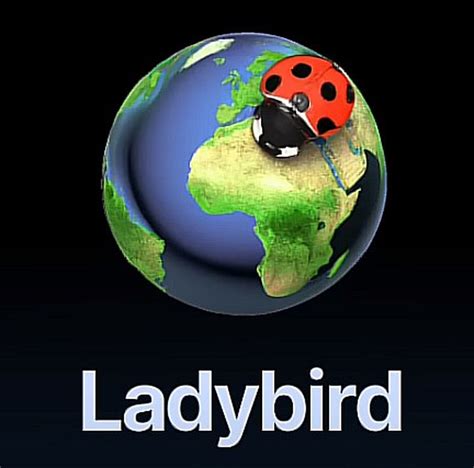**Ladybird**, a fledgling web browser, is making waves for its specific focus on the browsing experience. Unlike other browsers, which often come bundled with numerous features and services, Ladybird seeks to hone in on this one crucial aspect of internet use. This was evident when Andreas Kling, a prominent figure behind the project, announced his decision to step down from SerenityOS to focus primarily on the browser. This shift promises a dedicated effort towards creating a browser that stands out in the crowded market dominated by giants like Chrome and Firefox.
One notable aspect of Ladybird’s journey is its decision to move away from the initial approach of re-implementing everything from scratch. Instead, the project has embraced using existing libraries that other web runtimes utilize, a practical choice driven by feasibility. This shift, however, has drawn mixed reactions. Some users, like fabrice_d, argue that while it’s okay to adapt and change strategies, it also sets a precedence that might make future claims by Ladybird to be taken with some skepticism. On the other hand, others like mariusor emphasize that the focus should be on the evolution of the project, and changing approaches when necessary is part of that growth.
A significant debate around Ladybird is its choice of programming language. The browser is being developed primarily in C++, a language that has drawn criticism from parts of the community concerned about memory safety. As riskable points out, the history of browser vulnerabilities caused by memory management issues in languages like C++ is substantial. This has left some users apprehensive about a browser not built on memory-safe languages like Rust. In response to these concerns, comments suggest that the Ladybird team is actively evaluating alternatives and could introduce a mature successor language in the near future, which indicates a pragmatic approach to addressing these issues.
The evolution of Ladybird also includes a notable rebranding effort. The browser’s logo has undergone changes, leading to a split in opinions. While some users like MaximilianEmel miss the old cute logo, others like logicprog appreciate the modern aesthetic, seeing it as a signal that Ladybird is a serious contender for the future. This balance between nostalgia and modernity reflects Ladybird’s broader goal of providing a robust and contemporary web browsing experience.
The prospect of Ladybird reaching an alpha release by 2026 also draws various perspectives. Some, like vimsee, express excitement and optimism, recalling the early days of Firefox and its groundbreaking impact on the browser market. However, there are concerns about the long development timeline and the immense complexity involved in creating a new browser from scratch. The parallel with past browsers, like Firefox in its infancy, illustrates the potential and challenges that Ladybird faces in this ambitious endeavor.
With a shift towards a non-profit model backed by sponsors, Ladybird aims for sustainability while staying aligned with its core mission. This model has received both praise and skepticism. Users like roughly see value in a model that emphasizes respect for users, similar to the approach of projects like Framework laptop. However, the success of this model will depend on effective governance and stable financial backing, as pointed out by toomuchtodo. Moreover, suggestions like those from logicprog propose innovative funding strategies, such as pay-what-you-want models and monetizing pre-built binaries, reflecting the community’s creative input in supporting open-source projects.
The broader implications of Ladybird’s development highlight the diverse expectations and hopes within the tech community. Enthusiasts await technical breakthroughs, such as integration with modern web standards and language advancements. Meanwhile, debates on design aesthetics, funding models, and long-term viability underscore the complexities of launching a new web browser in today’s market.
In conclusion, Ladybird emerges as a passionate project dedicated to redefining web browsing. Despite facing significant challenges, its dedicated focus, community support, and adaptive strategies position it as a noteworthy contender. Whether it can carve out a substantial niche in the browser market remains to be seen, but the journey promises to be an intriguing one. For those interested in following its development, Andreas Kling regularly shares updates on his YouTube channel.
Stay tuned to see how Ladybird evolves and whether it can significantly impact the browser landscape. With its ambitious goals and an engaged community, this project could very well shape the future of web browsing.


Leave a Reply